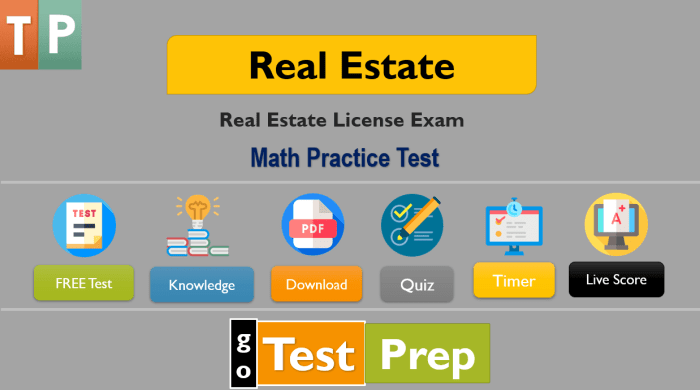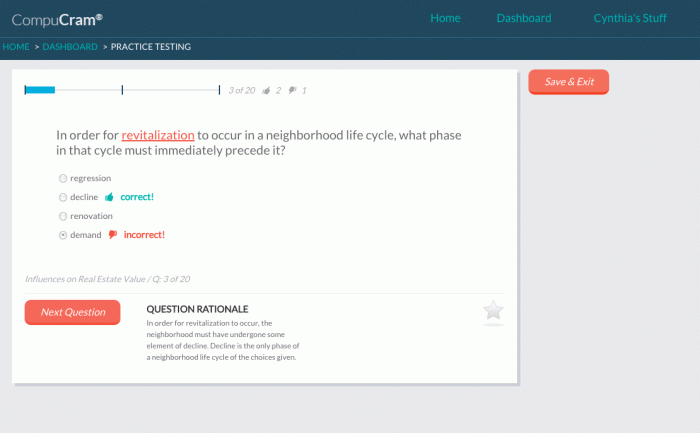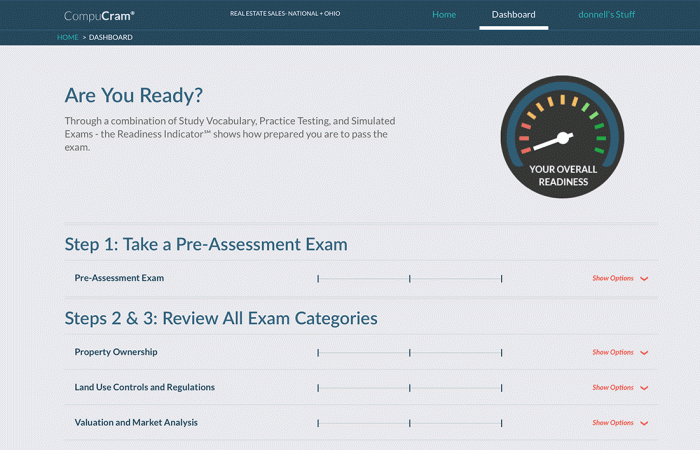Prepare to conquer the NC Real Estate Practice Test with our comprehensive guide. Discover the North Carolina Real Estate Commission (NCREC) and delve into the exam’s format, content, and essential preparation strategies.
With invaluable study tips, sample practice questions, and exam day strategies, this guide empowers you to approach the test with confidence and emerge as a real estate professional.
Introduction: Nc Real Estate Practice Test

Mastering the North Carolina real estate practice test is crucial for aspiring real estate professionals. It evaluates your knowledge of the industry’s intricate regulations and ethical guidelines, ensuring you possess the competence necessary to navigate the competitive North Carolina real estate market.
North Carolina Real Estate Commission (NCREC)
The North Carolina Real Estate Commission (NCREC) is the governing body responsible for regulating the real estate industry in North Carolina. NCREC establishes licensing requirements, enforces ethical standards, and ensures consumer protection. By passing the practice test, you demonstrate your understanding of the commission’s regulations and commitment to upholding the highest standards of professionalism.
Exam Overview

The North Carolina Real Estate Practice Test assesses your knowledge and understanding of real estate principles and practices relevant to the state of North Carolina. It is a crucial step in obtaining your real estate license in the state.
If you’re looking to brush up on your knowledge for the NC real estate practice test, one of the best ways to prepare is to expand your vocabulary. Check out this comprehensive list of words with p o i s e m to enhance your understanding of real estate terminology and concepts.
The exam consists of 100 multiple-choice questions and must be completed within 150 minutes. It covers a wide range of topics, including real estate law, brokerage, finance, property management, and ethics.
Topics Covered on the Exam
The North Carolina Real Estate Practice Test covers the following topics:
- Real Estate Law and Regulations
- Real Estate Brokerage
- Real Estate Finance
- Property Management
- Real Estate Ethics
Preparation Tips

Passing the North Carolina real estate practice test requires effective preparation. To maximize your chances of success, consider the following tips:
Firstly, familiarize yourself with the exam format and content. The North Carolina Real Estate Commission (NCREC) provides a detailed Artikel of the exam topics on their website. This will help you focus your studies on the most relevant areas.
Study Materials and Resources
Various study materials and resources are available to assist your preparation:
- NCREC-Approved Courses:Enrolling in an NCREC-approved real estate course is a comprehensive way to cover the necessary material. These courses typically include textbooks, practice questions, and instructor support.
- Textbooks:Several reputable textbooks specifically designed for the North Carolina real estate practice test are available. These books provide in-depth coverage of the exam topics and often include practice questions and self-assessments.
- Online Resources:Numerous online platforms offer study materials, practice tests, and other resources tailored to the North Carolina real estate practice test. These resources can supplement your textbook studies or serve as a standalone preparation method.
Effective Study Methods
To optimize your study efforts, consider the following effective methods:
- Active Reading:Engage actively with your study materials by highlighting, annotating, and summarizing key concepts. This helps improve comprehension and retention.
- Practice Questions:Regularly solve practice questions to test your understanding and identify areas that require further attention. Utilize practice tests that simulate the actual exam format to familiarize yourself with the question types and time constraints.
- Spaced Repetition:Review the material at increasing intervals to strengthen your memory and improve long-term retention.
- Study Groups:Join or form study groups with fellow real estate aspirants. Discussing concepts, sharing knowledge, and quizzing each other can enhance understanding and retention.
- Tutoring:If needed, consider seeking professional tutoring from an experienced real estate instructor. They can provide personalized guidance, clarify complex topics, and address your specific areas of difficulty.
Practice Questions

Mastering the content is one part of the preparation; the other is practicing with questions. Familiarize yourself with the types of questions you can expect and hone your skills to increase your chances of success.
Below is a table containing sample practice questions covering various topics on the North Carolina Real Estate exam. Study these questions carefully and review the answer explanations to solidify your understanding.
Contract Law
| Question | Answer | Explanation |
|---|---|---|
| Which of the following is NOT a valid consideration in a real estate contract? | Love and affection | Consideration must have monetary value or economic worth. |
| What is the difference between an executory contract and an executed contract? | An executory contract is one that has not been fully performed by either party, while an executed contract is one that has been fully performed by both parties. | This distinction is important for understanding the rights and obligations of the parties involved. |
Real Estate Brokerage
| Question | Answer | Explanation |
|---|---|---|
| What is the primary duty of a real estate broker to their client? | To act in their client’s best interests | This duty includes providing competent and ethical service. |
| What are the different types of real estate brokerage relationships? | Single agency, dual agency, and designated agency | Understanding these relationships is crucial for managing potential conflicts of interest. |
Exam Day Strategies
Maintaining composure and implementing effective strategies are crucial for success on exam day. Proper time management and a well-thought-out approach can significantly enhance your performance.
Before the exam, ensure you have a clear understanding of the exam format, time limits, and question types. This knowledge will empower you to plan your approach and allocate time effectively.
Time Management Techniques, Nc real estate practice test
- Prioritize Questions:Begin by identifying the questions you are most confident in and answering them first. This will boost your confidence and provide valuable time for more challenging questions later.
- Allocate Time Wisely:Divide the exam time equally among the sections, ensuring you spend an appropriate amount of time on each question. Do not get bogged down on any one question; move on if you are unsure and return to it later if time permits.
- Manage Your Time:Use a watch or timer to keep track of your progress. This will prevent you from spending too much time on any one question and ensure you complete all sections within the allotted time.
Handling Difficult Questions
- Don’t Panic:If you encounter a difficult question, remain calm and do not panic. Take a deep breath and try to approach it from different angles.
- Process of Elimination:Eliminate the answers you know are incorrect. This will narrow down your options and increase your chances of selecting the correct answer.
- educated Guess:If you are unable to determine the correct answer, make an educated guess based on the information provided in the question or your prior knowledge.
Remember, the exam is designed to test your knowledge and skills. By implementing these strategies, you can approach the exam with confidence and maximize your chances of success.
Frequently Asked Questions
How many questions are on the NC Real Estate Practice Test?
The test consists of 120 multiple-choice questions.
What is the time limit for the exam?
You will have 3 hours to complete the exam.
What topics are covered on the exam?
The exam covers a wide range of real estate topics, including real estate principles, practices, law, finance, and appraisal.